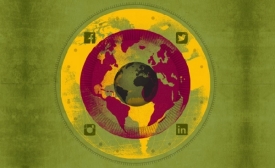soft power
China’s main goals in South America are economic, but it also hopes to win public and political support. Thus, an economic push by China is also a soft power push, as Beijing uses its funding (both public and private) to win goodwill in developing countries.
Pew Global Research released the results of its “Balance of Power” survey, and it contains a lot of interesting data about what the world thinks about China. On the whole, impressions of China are positive.
“Our hawker food is famous throughout the world. “Many people come to Penang mainly for its food. “If we lose it, then Penang is finished. We must maintain our branding as the top street food destination in Malaysia,” he said, adding that anyone, including foreigners, could provide their feedback.
As the BRICS Summit meets hot on the heels of the FIFA World Cup, also in Brazil, a remarkable trend is apparent. Most of the major global sports events such as the World Cup and the Olympic Games are taking place in the emerging powers of the 21st century. Russia, China and South Africa are all hosting the World Cups or Olympics along with Brazil in recent years. This phenomenon reflects a trend to adopt global sports events as a diplomatic tool to enhance prestige and become more socially accepted in the established world order.

The current UNO publication, Numero 17, La Nueva Diplomacia, features articles focusing on new diplomacy and international relations, and includes a piece by CPD Director, Jay Wang titled Nation Branding Revisited. Other articles cover topics ranging from Soft Power and Digital Diplomacy to Economic Diplomacy and the role of non-state actors in diplomatic relations.
The Chinese government released its second-ever white paper, outlining its foreign assistance from 2010-2012. As the country continues to make itself an international development player, the new details about how it spent is money gives a better understanding into the country’s goals.
As the World Cup drew to a dramatic close on July 12, CPD reached out to a few public diplomacy experts and asked whether they thought Brazil’s hosting of the tournament had been worth it, in terms of its global image and soft power, and what it means for the country as it prepares for the arrival of the Olympics in 2016.
Did the World Cup improve or damage Brazil's reputation on the international stage?







